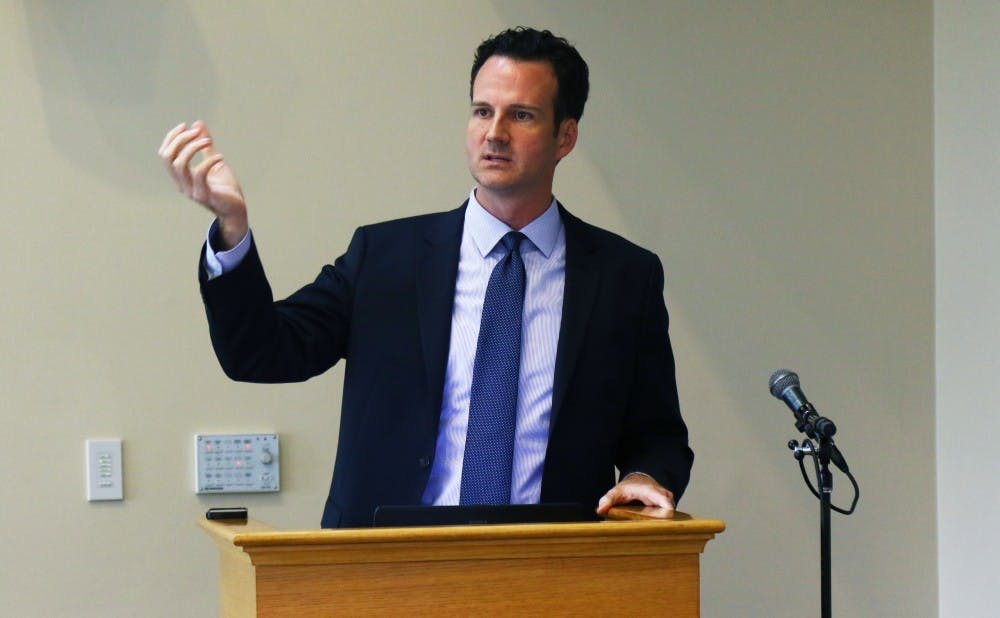Scientists, vaccine developers and students gathered at Duke Friday to discuss forming new alliances to promote access to medicine and limit the spread of Zika, a mosquito-borne disease that affects pregnant women.
The conference, titled “Alliances and Incentives in the Era of Outbreaks,” brought in speakers from fields including policy, law and clinical research to discuss their opinions on global health and lessons learned from alliances formed for the creation of an Ebola vaccine. Hosted by the Global Healthcare Innovation Alliances, the event aimed to encourage discussion between different groups in order to improve the development and distribution of medical products.
“Our main themes are alliances and incentives because they go hand in hand,” said Julia Barnes-Weise, a visiting associate professor of practice in the Sanford School of Public Policy. “In the room, we have lawyers and doctors and industry people, so it’s a very fertile ground to come up with solutions.”
Barnes-Weise noted that she hoped the conference would place an emphasis on understanding the rapid development of Ebola vaccines—several of which are in trials, although none have been approved for clinical use in humans—and how those tools could be used for future and current outbreaks such as Zika.
Students in the Duke Innovation and Technology Policy Lab played a role in organizing the event by inviting the representatives from the industry and academia based on their work throughout the semester and their event in Washington last November. Held from 8 a.m. until 4:30 p.m., the conference included discussion by a panel of experts and a presentation from the finalists of Duke's Zika Innovation Challenge.
Julie Watson, an intellectual property attorney at Marshall, Gerstein and Borun LLP, focused during her talk on optimizing the transfer of technology between universities and the pharmaceutical industry.
After her talk, Watson expressed that she was initially hesitant about being invited as a speaker to the event given her background in law rather than global health. She added, however, that she understood how her experiences with clients could help in developing a framework for controlling future disease outbreaks.
“Whatever we work out for global access is implemented deal by deal,” Watson said. “These are all general principles, but at the end of the day, they’re individual contracts signed by two parties. How do we put these deals together going forward so that when there is a crisis, all of the agreements are in place to respond?”
Students in the Innovation and Technology Policy Lab said that they felt this experience was both rewarding and useful for their future work with the group.
Christina Langmack, a sophomore majoring in public policy and global health, explained that the lab had used what it learned from its conference in November to help build its knowledge in alliance formation and invite speakers for this event. She added that the lab partnered with the World Health Organization this semester to develop a new global health preparedness initiative.
"I think it's definitely been eye-opening to learn about the processes that a drug has to get through in order to actually make it to the market," sophomore Courtney Soufis said. "It's been really interesting to dive into the legal side of it because people don't really consider the legal side of developing a vaccine and its intersection with research and development."
Get The Chronicle straight to your inbox
Signup for our weekly newsletter. Cancel at any time.

